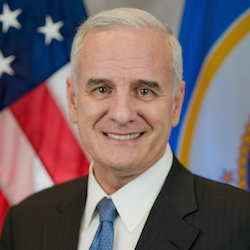
Minnesota’s governor and a legislator who leads the state Senate’s Aging and Long-Term Care Policy Committee promised increased scrutiny of senior living communities and the state health department Wednesday after the Star Tribune newspaper published a five-part series about elder abuse.
Last year, according to the media outlet, the Minnesota Department of Health received more than 25,000 reports of alleged incidents of physical or financial abuse, neglect or injury in licensed assisted living communities, memory care communities and nursing homes. The department investigated only three percent of the cases, however, and often complicated potential criminal cases because of the slowness of the investigations, according to the newspaper.
Assisted living communities are on the proverbial hot seat; the number of assisted living residents in Minnesota has doubled in the past decade and now stands at approximately 60,000, whereas the number of nursing home residents has decreased to less than 30,000, according to the Star Tribune.
Gov. Mark Dayton, a Democrat, told the newspaper that he plans to create a cabinet-level task force to address the state’s challenges in protecting older adults from abuse in residential care settings. The body will include state officials as well as elder abuse experts, he said.
The governor, who described the information in the reports as “appalling,” also said he was seeking proposals to reform the system, which legislators could begin considering when they convene in February.
Sen. Karin Housley, a Republican and leader of the state Senate’s Aging and Long-Term Care Policy Committee, called the report “incredibly disturbing” and admonished the health department for taking up to a year to follow up on reports of suspected abuse.
“During the upcoming legislative session, the committee will continue to examine possibilities on how to move forward in making absolutely sure our elderly population is cared for with the dignity, compassion and respect they deserve,” she said in a message posted on the website of the Minnesota Senate Republican Caucus.
Provider groups were represented in the report.
“If you keep throwing money at an agency that has systemic issues, then you’re not getting at the root cause of why there are so many delays and problems that are not getting fixed,” Patti Cullen, president and CEO of Care Providers of Minnesota, the state affiliate of the American Health Care Association/National Center for Assisted Living, said in the first installment in the series.
The fourth installment cited data that residents and families who complain directly to communities can face retaliation or eviction. Complaints about involuntary discharges and transfers from assisted living communities and nursing homes have increased 50% in the past five years, according to the newspaper, and they now are the No. 1 reported complaint, with more than 600 grievances filed last year.
Jodi Boyne, vice president of public relations for LeadingAge Minnesota, which also is the state partner for Argentum in Minnesota, told reporters that assisted living communities need to do a better job of explaining to residents and their families the level of services provided in assisted living and the process involved in discharging residents.
“A discharge should never be abrupt or unexpected,” she said.



